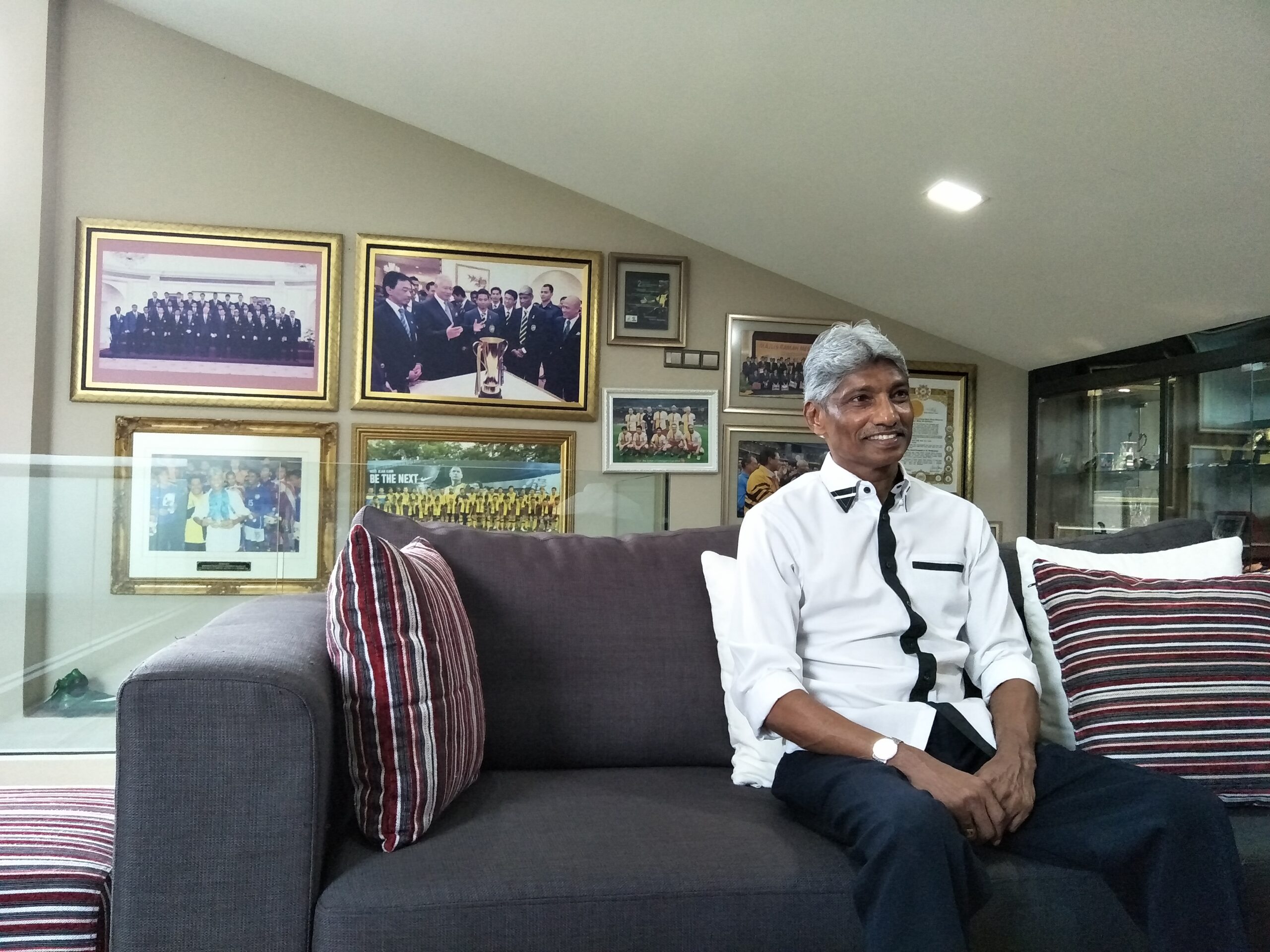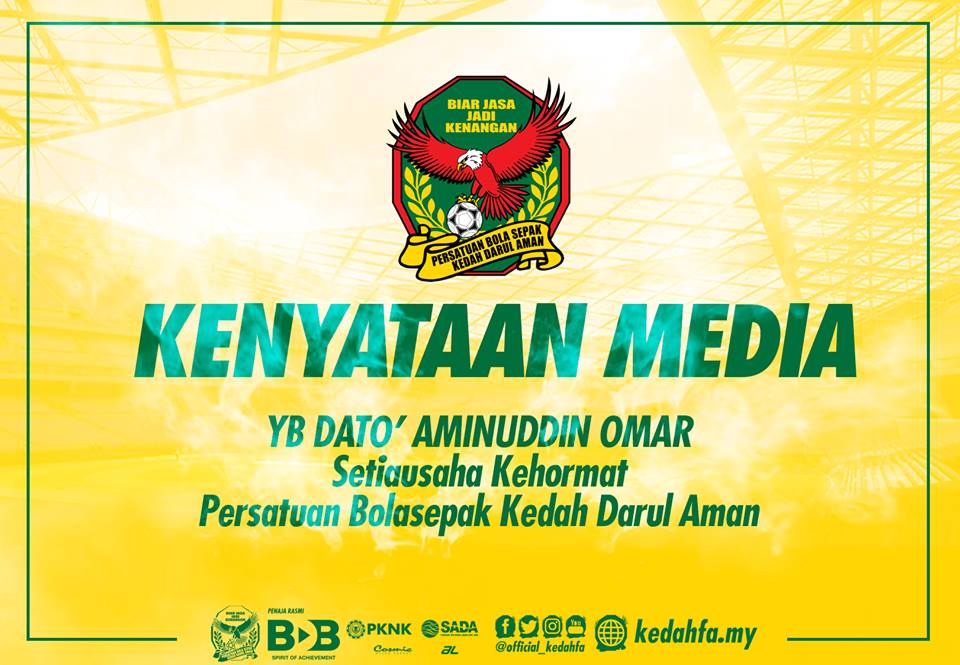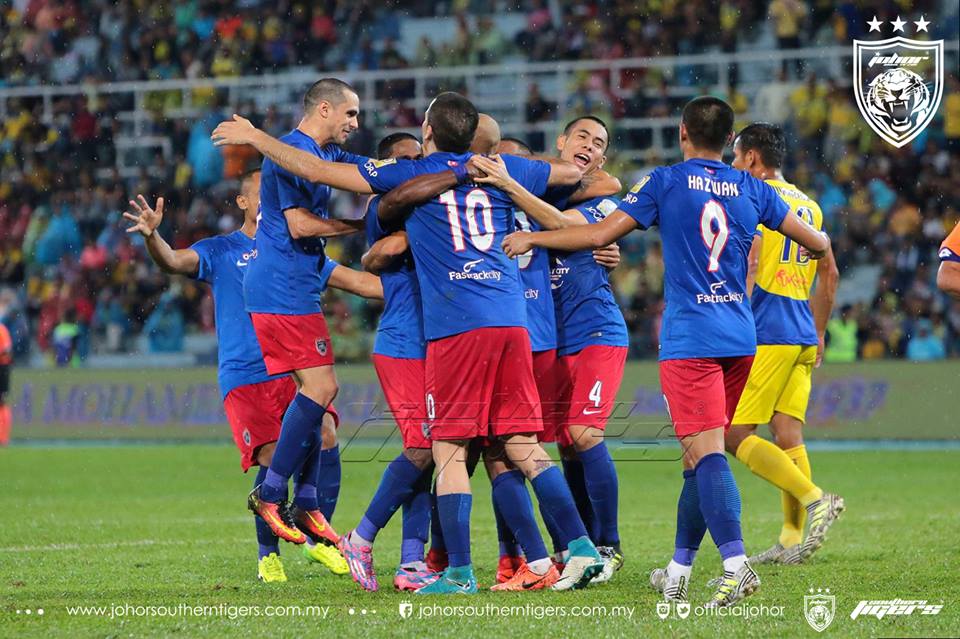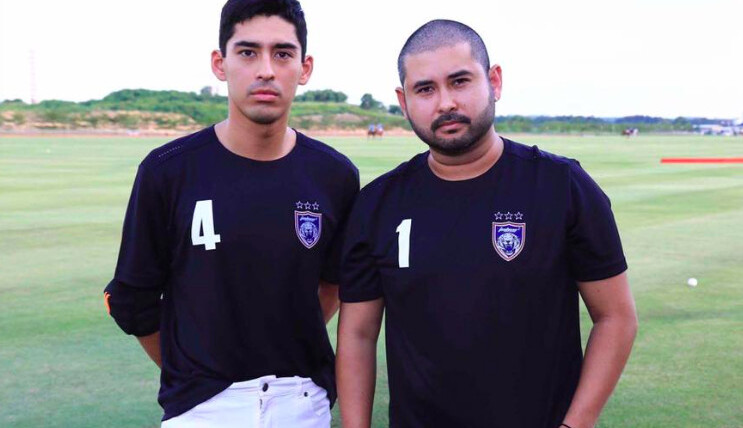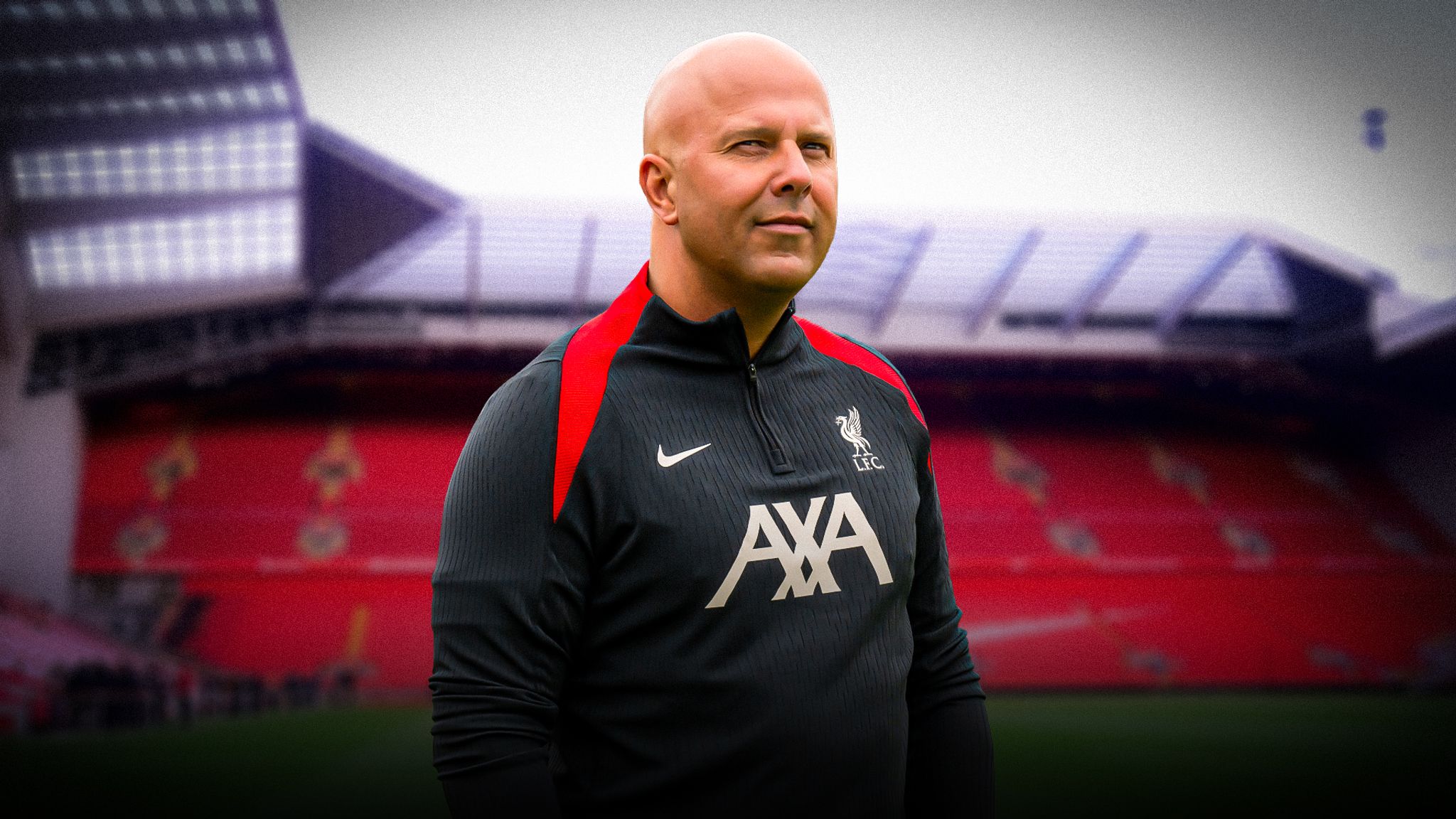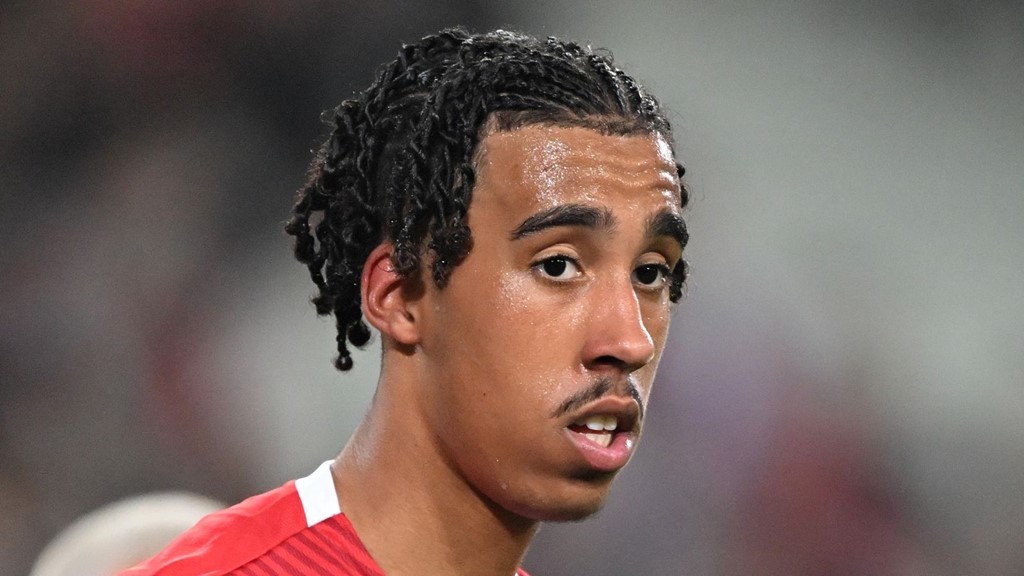Just about one month ago, Dez Corkhill astutely used a Bob Dylan classic to describe the current climate of Malaysian football in an articulate piece. “The times they are a-changing” indeed – even more so with Tunku Ismail ibni Sultan Ibrahim’s ongoing revolution at Football Association of Malaysia.
But for most seasoned Malaysian football fans, the inaugural paradigm shift took place approximately seven years ago, when Harimau Malaya rallied against the odds to rise from the ashes and clinch the AFF Suzuki Cup title for the first time in their history. The triumph sent unparalleled shockwaves into every district and town of the country. In a split second, Datuk K. Rajagobal and his men restored some degree of hope into a disillusioned footballing fabric – something many tried to do and failed miserably for over a decade, before him.
To commemorate the ongoing paradigm shift in Malaysian football, we visited with the man himself recently, to talk, ponder, discuss and deliberate a wide range of things, including the historic Suzuki Cup campaign, dealing with the various facets of football and his legacy for Malaysia and its football fraternity.
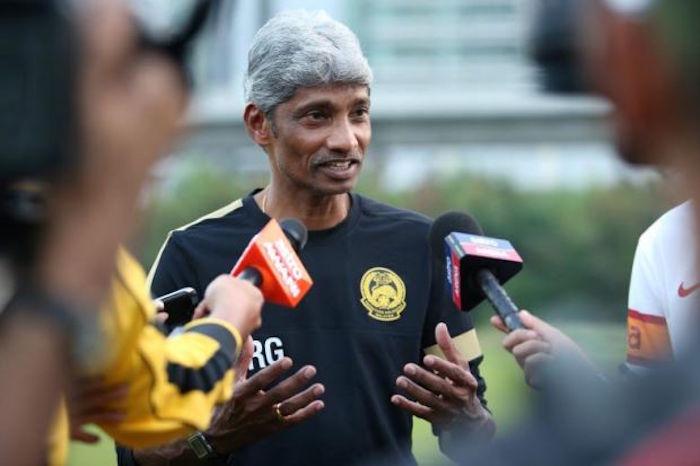
FO: Life is never a smooth sailing ship is it? I mean, just a year after winning the 2009 SEA Games Gold medal, your stint as the new national team boss started disastrously. A thumping 1-5 defeat at the hands of Indonesia. But while everyone panicked, you kept your composure. Why? How?
Rajagobal: But that’s life isn’t it? One minute it’s all fine and nice. The next minute, it hits you really hard. The reality is that we didn’t play very badly that night. I had a short time to work with the squad and I could only pick players I knew and understood – hence the squad was relatively young. But yes, we weren’t absolutely horrendous that night. There were just too many mistakes and you cannot afford to make them against a team like Indonesia. So I knew we lost 1-5 and it was a bad start. But if you were in my seat and you saw the things I did, you’d realize that we weren’t entirely bad. As the saying goes, there were plenty of positives.
FO: How did you maintain your composure though? The press went berserk; social media was erupting with comments. How does one tackle these hurdles, while trying to navigate a team through a football tournament?
Rajagobal: Even before the tournament, the odds were stacked against me. I knew it was always going to be difficult, so I had mentally prepared myself. I have to take responsibility for the result but at the same time, I had to protect the players. The press can be unreasonable at times, and that can inadvertently hurt the squad morale. That’s the last thing I wanted. More importantly, we had two more games left in the group stages. So I knew there was an opportunity for us and for me to salvage our pride.
FO: From a perspective of coach, is it frustrating that football is such a result-oriented game? You could see that the lads played well, but the public only cared about the result, didn’t they? Does that frustrate you?
Rajagobal: I know football is meant to be a game that’s all about winning, but I’d like to think it’s so much more than that. But even if it’s not, you’ve got to still aspire to at least set some basic standards as to how you’d like to get to the end goal, which in this case is winning. As a coach, even when we do well, I can be unsatisfied with multiple aspects of our performance. Why? Because on any other day, these mistakes or imperfections, could cost us the end result. Winning is a mixture of various factors, including circumstantial ones like luck. On days when you don’t have them, you’ve got to ensure the other factors work in your favour.
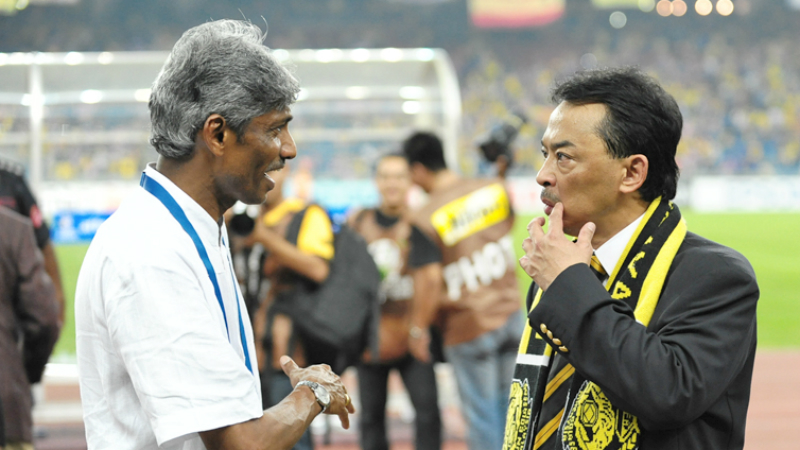
FO: Since we’re attempting to define football in its most basic aspect, what is your football philosophy?
Rajagobal: Philosophy isn’t only about what you’d like to do on the pitch in terms of our style of play. It’s also about deciding what the ultimate goal was for you and the team. To me, winning was crucial. But winning was always a step towards the bigger picture that I craved for. Two things were always important for me. I want to see my boys develop as players as well as human beings. And I want my teams and my job stints to leave a legacy, wherever I go. Anything that aids these process, including winning, is always welcomed.
FO: What mattered more to you – winning a game or playing good football?
Rajagobal: That’s a fine question, simply because people kept discussing the national team’s ranking during my tenure with Harimau Malaya. I’d like to think that there are other things that matter more to me. The development of my players would up there, definitely. Take the AFF Suzuki Cup team for example. I knew what we could achieve as a group. These boys – I’ve knew them from a very young age. So you can imagine the amount of satisfaction it gives me to see them develop into who they are today. Look at where Safiq is today. Look at where Aidil Zafuan is today. It’s almost similar to the teacher-school situation, really. Everyone chooses to evaluate a school based on the overall achievement of the school, but for a teacher, it’s more valuable to observe and see the individual progression of students within their classroom.
FO: Is that why you always kept faith in Safiq Rahim? Even when the entire country questioned your decision to always pick him over anyone else, including Kelantan’s Piya?
Rajagobal: Safiq Rahim is easily one of the best midfielders we’ve produced in a very long time, and he always had the quality to be a top notch player. We saw it in him from a very young age. So why should I doubt his potential, when things go wrong for a while? I don’t know what issues he was having with Selangor, but every time he came for national training, things were fine. He was always an influential player for us. As for Piya, he was good. But he was getting older and I wasn’t too sure of his ability to fit the style of play we were trying to implement.
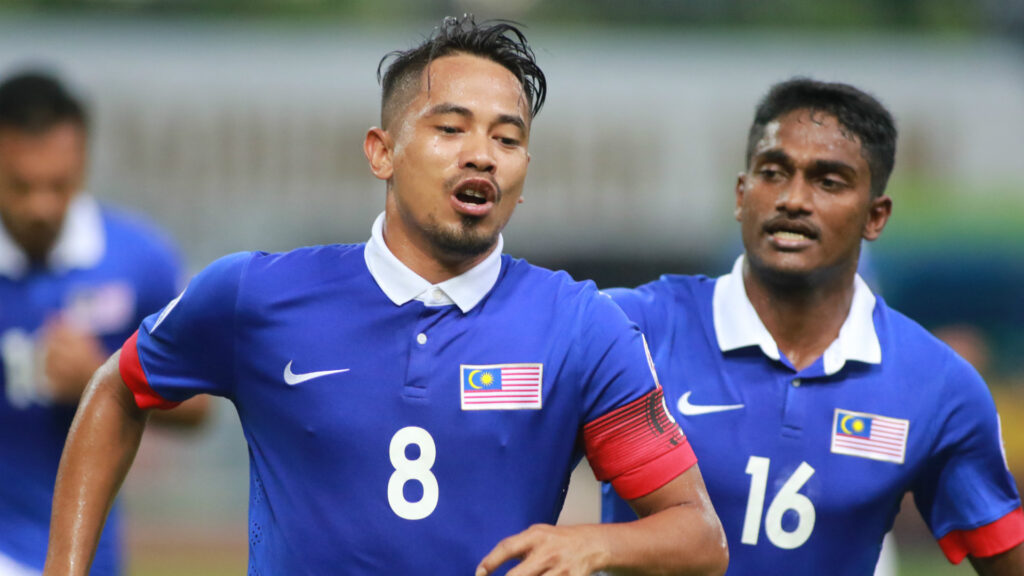
FO: Safe to say that Safiq’s current reputation doesn’t surprise you at all?
Rajagobal: Why would it? The potential was there all along. I saw it grow and develop from a very young age. All Safiq needed was the right environment and he got it with JDT. It’s precisely why he has developed exponentially. You could maybe attribute it to his marriage as well. Trust me, getting a family can sometimes play a huge role in stabilizing footballers. You become a lot more matured and reasonable. So I wouldn’t be surprised if being a husband and a father has also made him a better footballer in some ways.
FO: Who is the most technically gifted player you’ve coached?
Rajagobal: Mat Yo. He was technically one level ahead of every other player I’ve coached. Some of things I’ve seen him do; he’s brilliant. There’s another name as well – Ashaari Shamsuddin. The pass he provided for Safee Sali in the 2012 AFF Suzuki Cup final was absolutely world class. If only he changed his attitude and work rate to a certain extent, Ashaari could have developed into one of the finest players in his batch.
FO: Dealing with odd personalities is a huge part of the job, isn’t it?
Rajagobal: Yes, it undoubtedly is. There’s another name as well – Razali Umar Kandasamy. He was quick, possessed good upper-body strength and had every ingredient needed to be an excellent footballer. But sadly, the attitude was never right. His temperament was unpredictable and you could never understand where he went. He’d go missing all the time and it was difficult to help him maintain his focus. I had his name shortlisted for the 2009 SEA Games squad. But after the amount of trouble I went through in dealing with him on our training camp trip to China before that, I opted to remove his name from the squad. He could have really been something.
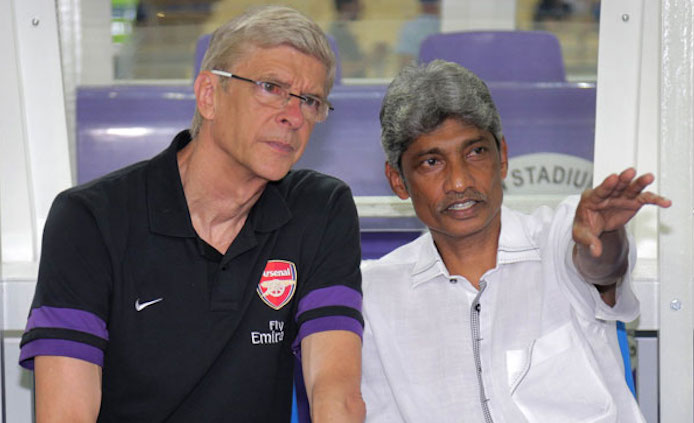
FO: Unfair criticisms. You are no stranger to that. The term “Mr. Experiment” was coined for you, towards the end of your stint. How did you react to that?
Rajagobal: Haha, to be fair, I couldn’t understand why it was coined. Rotation is a common practice in international football. And when you consider the limited amount of time we have with players, I have to sometimes take risks and field certain players, so I can better understand facets of their game. I can spot good footballers by watching the Malaysia Super League. But not all good footballers will be able to handle pressure on the international stage – it’s a different ball game. So how do you want me to evaluate that? The only way I know if a player has the mental strength to deal with pressure is if I give them a chance to play.
FO: Football can sometimes be harsh. Unfair criticisms get dished on a regular basis, individuals are hammered for unreasonable reasons at times. Does this frustrate you in any way?
Rajagobal: You’ve got to ask Arsene Wenger how that feels! But well, criticism is a part of the job. But sometimes, you’ve got to look at hard facts. We won the 2009 SEA Games. We won the 2010 AFF Suzuki Cup. We didn’t do too badly in the Asian Cup qualifiers – had a couple of results gone our way, we could have finished second in the group. And we did all of these while developing our players as well. But few people would recognize that. Football is a game of emotions, and on most occasions, it plays a huge role in influencing how people perceive and recognize you. Then there’s also external forces. When we played Barcelona, I know that several key individuals were hoping to see us get thrashed so they could use it as an excuse to sack me right after the game. I had faith in myself, I had faith in the players. We got our game plan spot on and played brilliantly on the day. And we only lost 1-3! Of course, they couldn’t sack me right after that.
FO: If it’s so unforgiving, how do you continue to conjure the strength to remain in it? How to you retain the passion for it?
Rajagobal: Because when you block the negative aspects of it, you will remember and see the things that made you fall in love with the game, to begin with. I still get excited looking at young kids doing step-overs. I still get chills down my spine when I watch footballers score astounding goals. These things never die. From a coaching point of view, it’s all about the legacy and impact you’ve left on a country or a region. People still come up to me and thank me for the Suzuki Cup. People still remember me when I go to places like Vietnam and Myanmar. It ties football to a sense of purpose. And as long as that purpose exists, none of the negative facets of modern football can destroy my love and passion for the game.
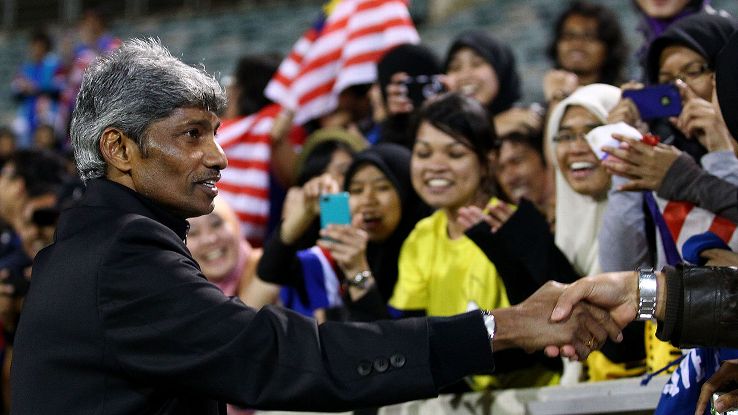
FO: What is your football legacy for Malaysia?
Rajagobal: In the aftermatch of our Suzuki Cup win, I spent some time visiting several academies and observing several youth training sessions. And when I asked these small kids about their footballing dreams, they said: ‘I want to be the next Safiq Rahim! I want to be the next Safee Sali! I want to be the next Mat Yo!’. You know how difficult it is to get the modern generation to idolize local footballers? That’s our legacy. The boys know that as well, I told them before the final match. I told them that we would be leaving a major legacy, if we won the game. Thankfully, we won and the legacy was set.
FO: One final question. We can’t help but ask you about TMJ. How big of a deal is this?
Rajagobal: It’s massive, because of his track record. In a short space of time, he has turned Johor DT into an unstoppable force. I’m not saying it’ll be easy to revive the national football scene. It’s going to take more than five years to get things right. But with the right support and his determination to get things done, I’m confident of seeing positive changes within the national set-up, at the very least. Their decision to also bring Tan Cheng Hoe into the picture is a right one. He’s a good coach but more importantly a smart one as well. He picks things up quickly and I can see him becoming the next national team boss in future.
Other posts by Keeshaanan Sundaresan


